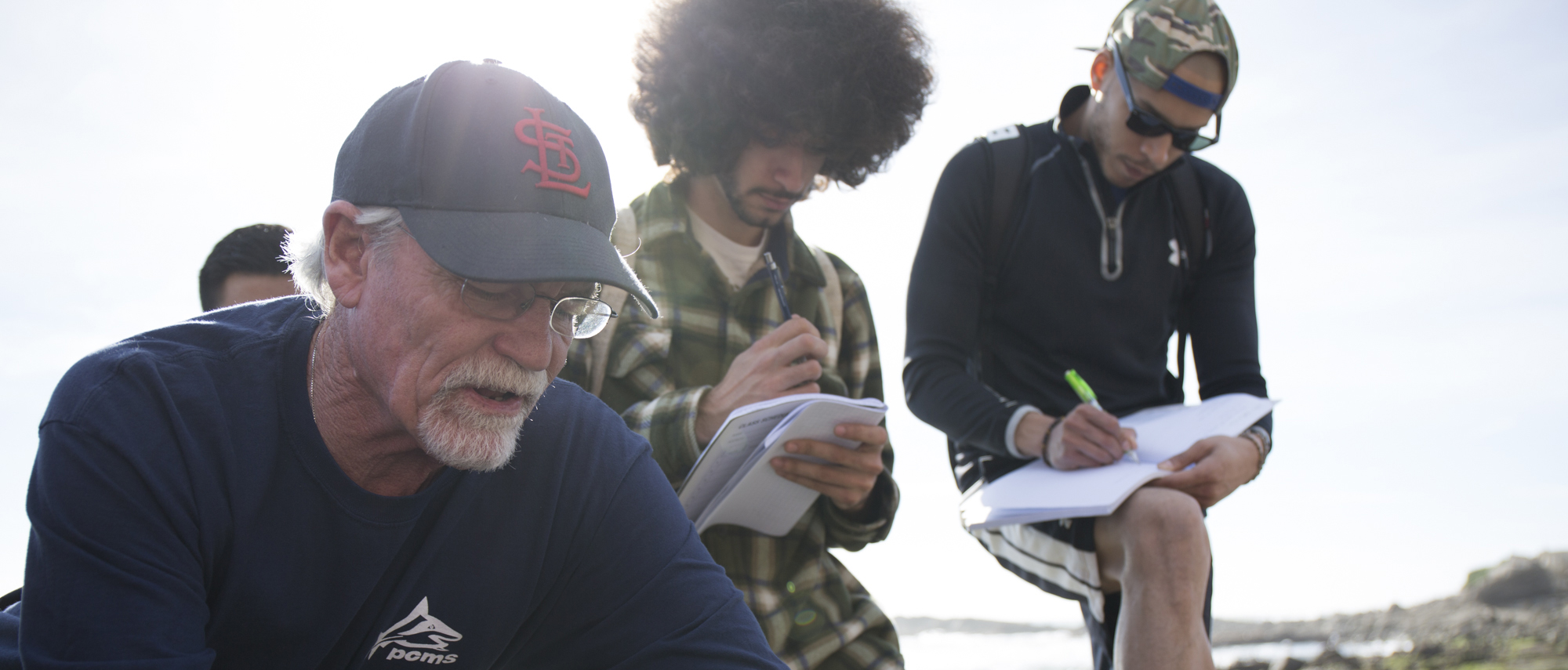A small cluster of students weighted down with backpacks and graphing notebooks meander along the jagged coastline in San Pedro, California. At the head of the group is professor Raymond Wells.
Wells has been a professor at Pierce College for more than 27 years. He has worked in the Gulf of Mexico since 1973 and was one of the founders of the Marine Science Program at Pierce. The program has attracted students nationwide as well as internationally.
“This program kind of is my life,” said Wells. “Every place I go are places that are special to me and I enjoy it.”
Wells’ passion for the subject he teaches overpowers any obstacles he faces while teaching out in the field.
“My position is really physical. I’m boosting people up into boats. I have torn part of my foot from trying to land a boat in waves so that it wouldn’t crush the students,” said Wells. “It’s pretty hard on my body. I’ve broken several bones teaching this class, but I’m not ready to give up.”
Wells completed his doctorate in Marine Biology at the University of Southern California. Prior to becoming a professor at Pierce, Wells was an aquanaut, living in the National Oceanic and Atmospheric Administration hydrolab. He has around 1,800 hours underwater.
Wells’ Biology 11A students explore Catalina Island kelp forests during the spring semester. Students in the Biology 11B and C classes, which are offered during the spring and fall, travel to different islands in Mexico to study the region’s marine wildlife.
During the same two weeks every summer, Biology 123 students travel to the Sea of Cortez in Bahia de Los Angeles, Baja California, Mexico.
Those who are part of the program leave with knowledge and field experiences that put them well above that of an entry level university student.
“From here, a lot of my students go to Northridge, which is an excellent program,” said Wells.
Jonathan Hernandez, a criminal justice and a theater major, has been a student of Wells’ for almost two semesters. He previously took Wells’ Biology 121 course and is currently enrolled in Biology 122.
“I like taking his class. You have to be very concentrated,” said Hernandez. “He’s a good teacher. I’ve taken him before, he explains everything clearly so it’s just a matter of you paying attention. I could have taken another lab, but I like professor Wells.”
Rob Coulter, an agriculture business major, is a current student of Wells.
“They’re my favorite classes. Dr. Wells is very concise and he gives you the information that you need to succeed in the class,” said Coulter. “He lays everything out, it’s all organized in such a way that it makes it very easy to understand and remember.”
Wells also taught courses at CSUN and USC in the past.
During his time at USC, Wells worked in the principal investigator group for a San Onofre Grant for almost eight years. The investigator group included participants from Scripps College, Santa Barbara and Long Beach State College, who all contributed to the development of Experimental Field Ecology.
“All these different teams working on different aspects of what the nuclear plant does to the environment. Everything except radioactivity, we couldn’t do that,” Wells said.
Before getting a degree, let alone, a doctorate in marine biology, Wells attended California State University, Northridge as a pre-vet major. Now, however, Wells couldn’t imagine a different life.
“I love coming to work everyday,” Wells said. “And on those days when I say, ‘I don’t want to go to work,’ I just kick myself on the butt and say, ‘you idiot, look what you’re going to go do, there’s no better job than this,’ I can’t think of a better job.”




